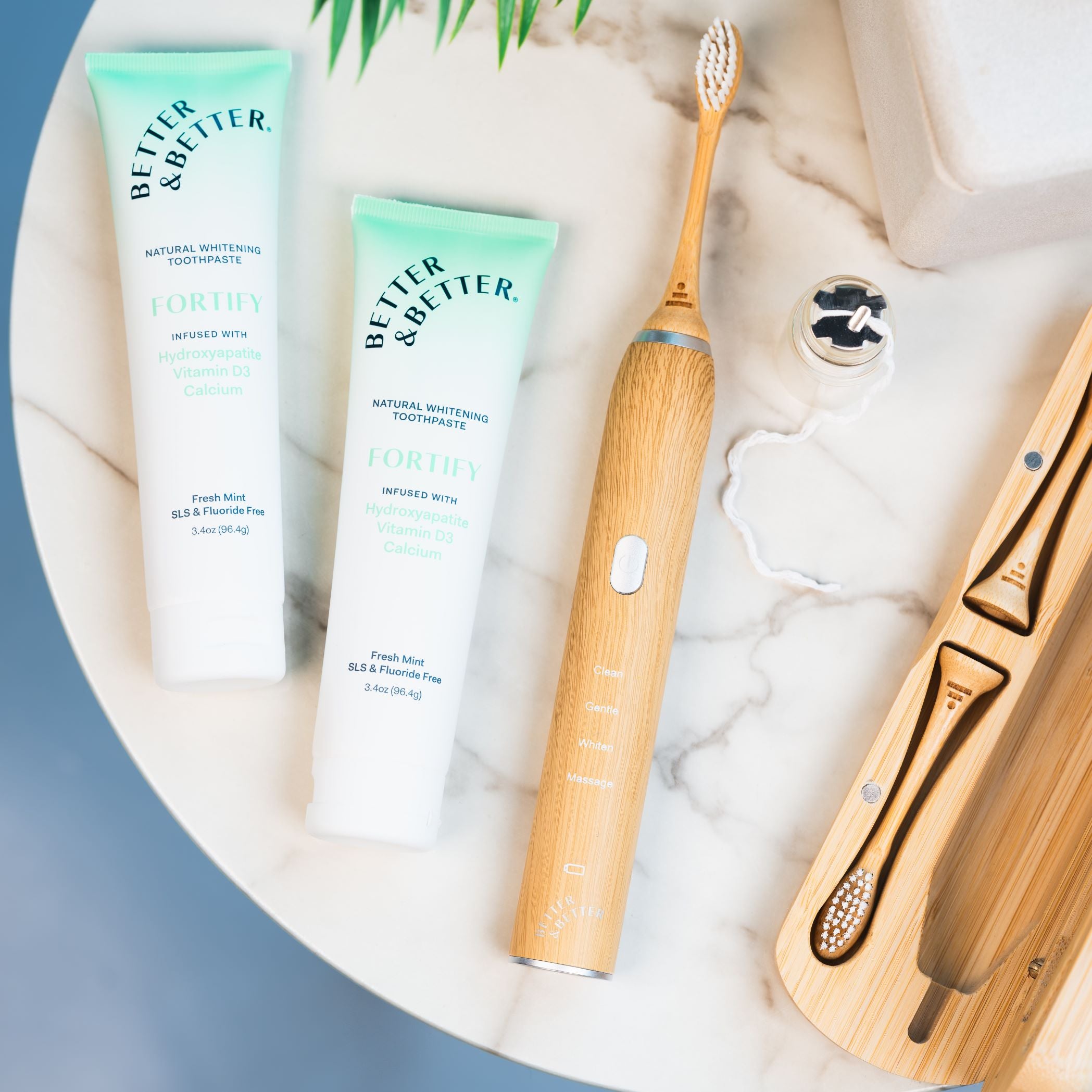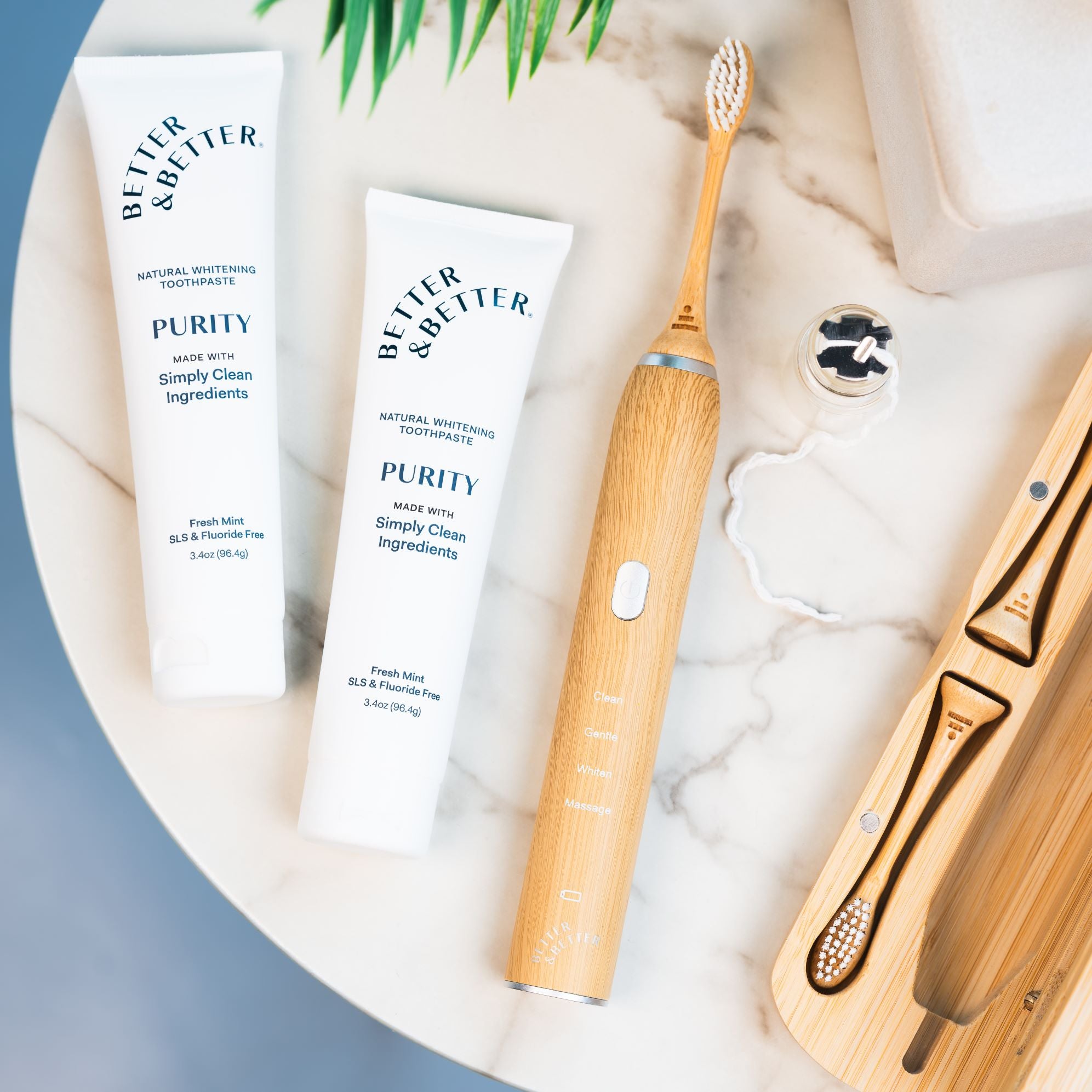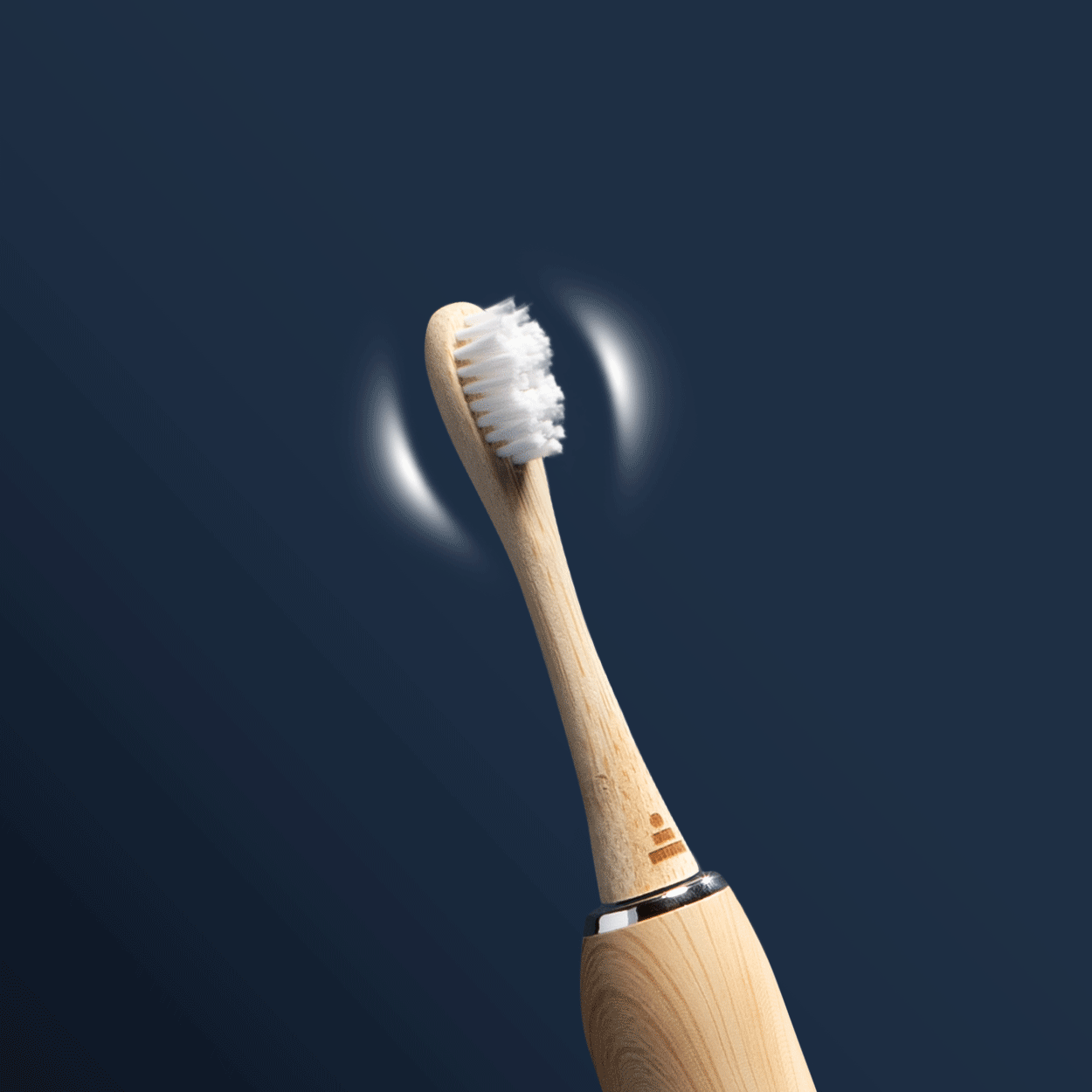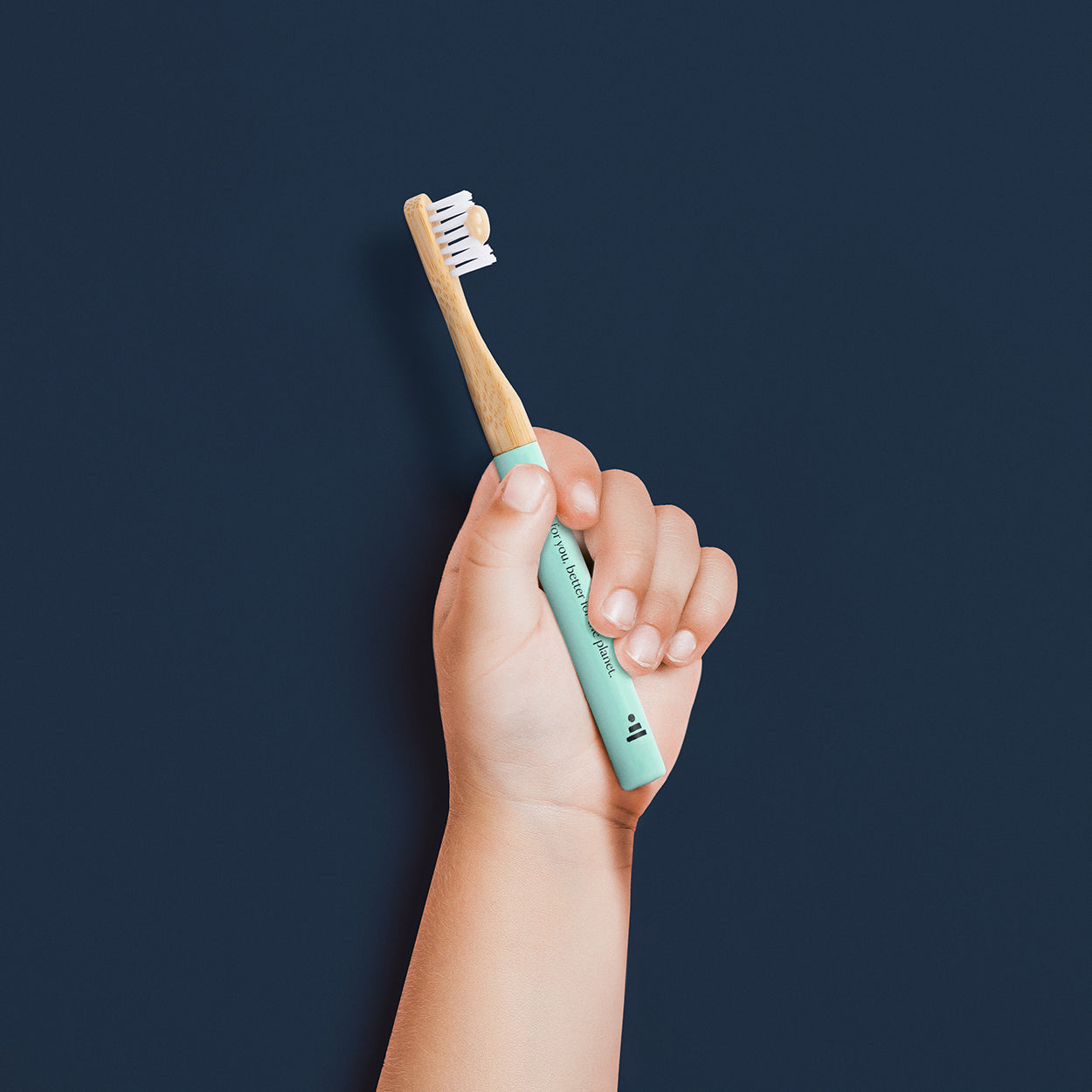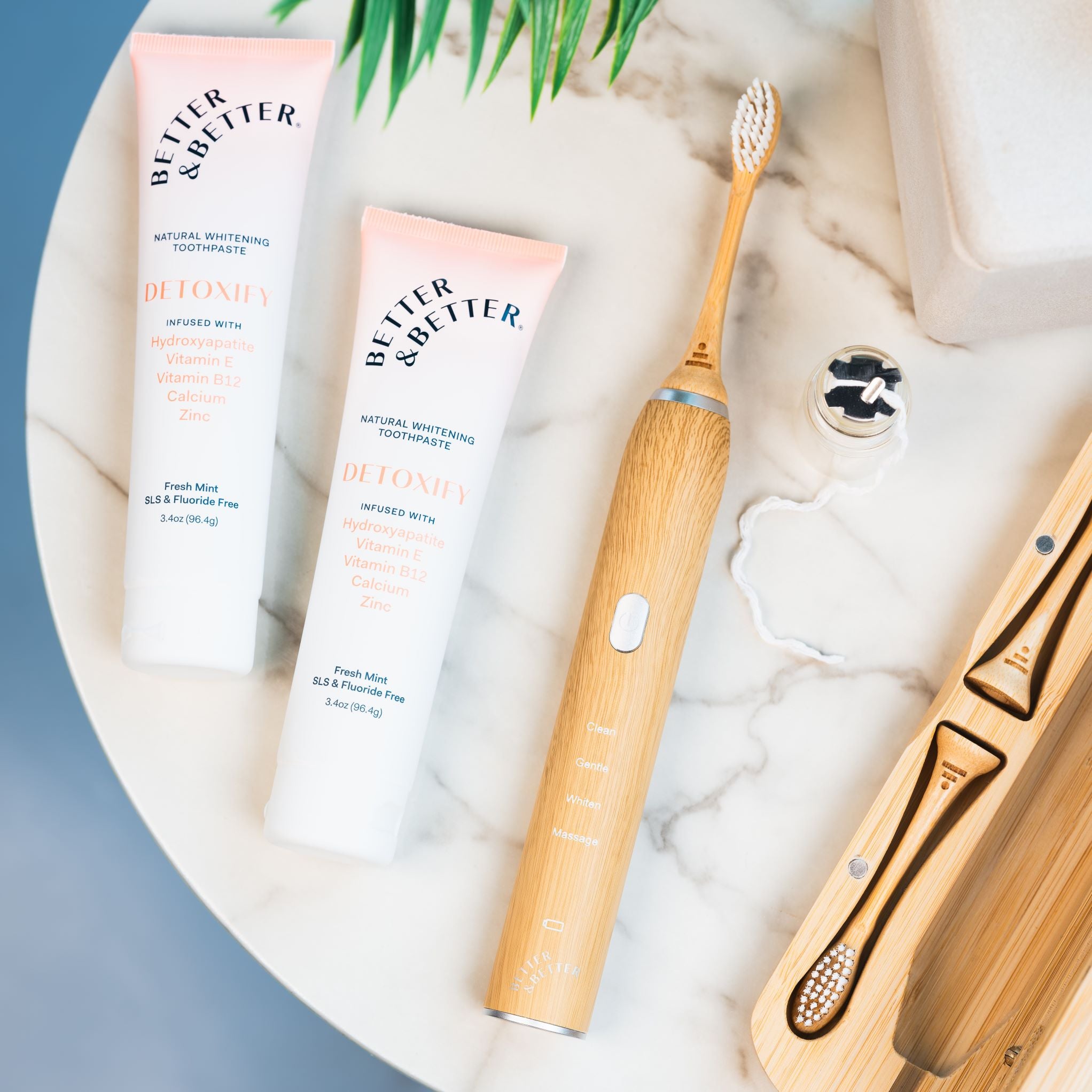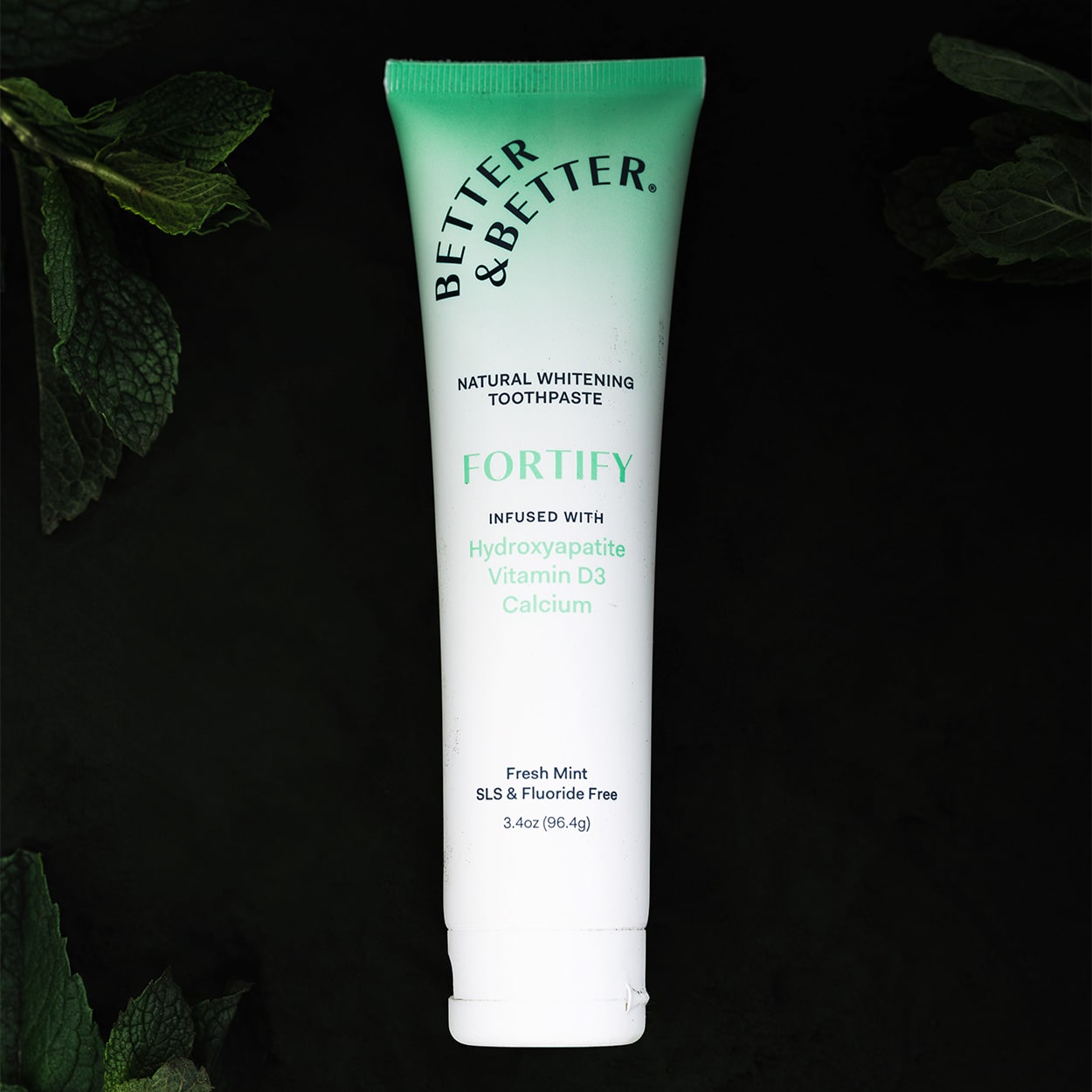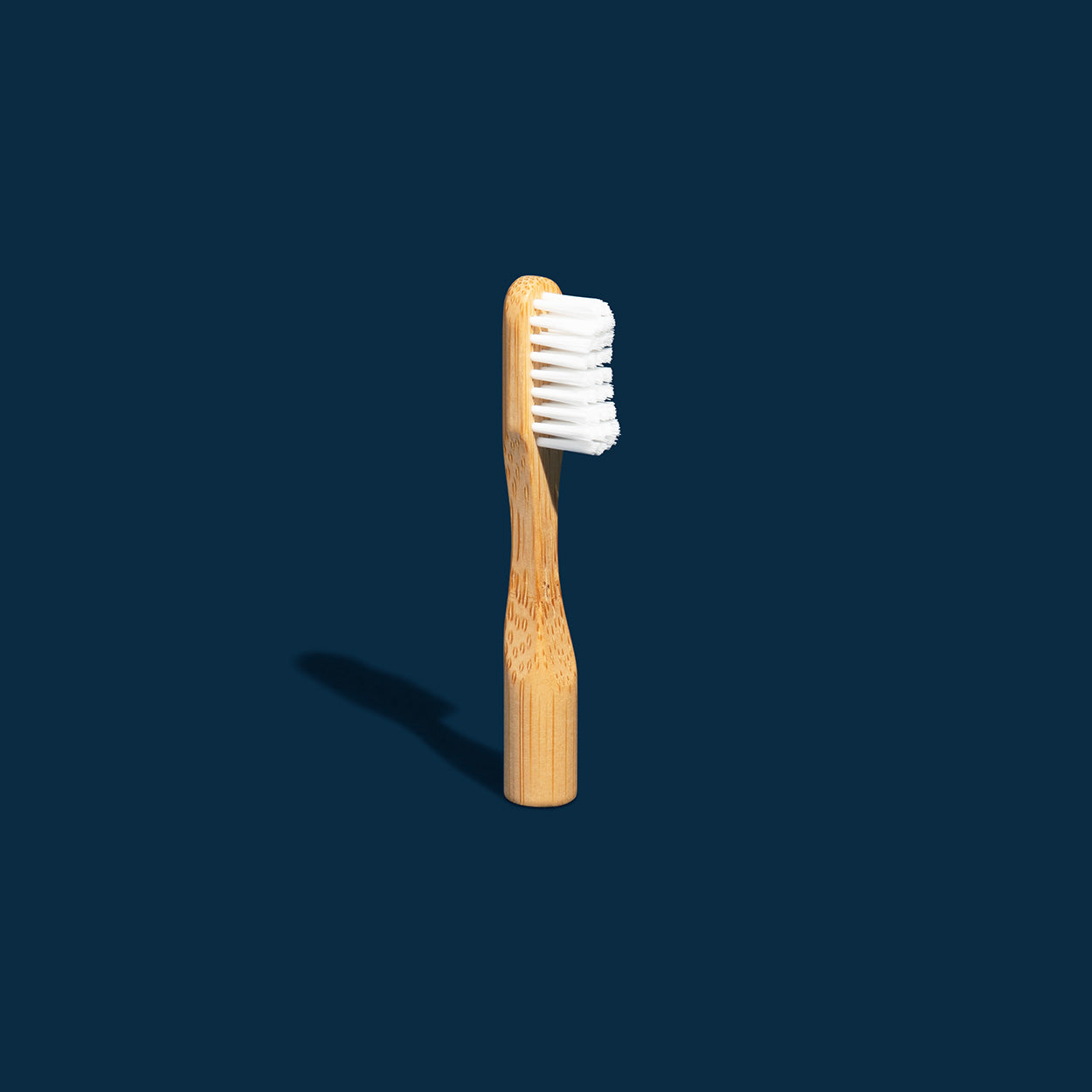Growing up, most of us were told that the only ways to take care of our teeth and gums were brushing and flossing. Those habits definitely need to be part of our daily routines. But there’s another not-so-obvious factor that can make or break your oral health: your mental health.
“People are often surprised that their dental health is connected with their oral health, and their oral health, in turn, is connected with their mental health,” Dr. Susan Albers, PsyD, tells Cleveland Clinic. “But they’re really interconnected.”
In this article, we’ll explore different ways your mental health impacts your oral health (and vice versa) and share some tips to keep your mind and your mouth in tip-top shape year-round.
Can Your Mental Health Affect Your Oral Health?
Yes—your mind can affect every part of your body, including your teeth and gums. The primary points of concern are stress, anxiety, and depression—all of which may prompt people to neglect their dental hygiene habits.
For example, a 2015 meta-analysis of 25 studies discovered that people living with severe mental health disorders were nearly three times more likely to have lost their teeth than people in the general population. They also had significantly higher decayed, missing, and filled teeth.
The inverse can be true as well: Your dental health can affect your mental health. If you’re experiencing issues with your teeth and gums, it’s understandable that you might feel self-conscious or socially anxious.
6 Ways Mental Health Can Impact Oral Health
Let’s take a closer look at six ways your mind and mouth are connected.
1. Teeth Grinding
Teeth grinding (or bruxism) is a well-documented symptom of stress, anxiety, depression, and other mood disorders. This can happen when you’re awake or asleep, but either way, grinding your teeth can lead to symptoms such as jaw pain, tooth sensitivity, headaches, and pain while eating.
2. Anxiety
Some people facing mental health challenges may experience dental anxiety, which refers to fear or stress associated with seeing a dentist, orthodontist, or oral surgeon.
If you avoid seeing the dentist for regular checkups, this can lead to dental issues becoming worse or a greater need for emergency care. It can also feed the underlying problem of dental anxiety, creating a vicious cycle of dental anxiety.
3. Nutrition
What you eat (or don’t eat) can greatly impact your mood and your oral health. For instance, anxiety and depression may make you not feel like eating, which can limit your intake of vitamins and minerals that are essential for healthy teeth and gums.
Alternatively, consuming junk food (especially sugary drinks and snacks) to temporarily boost your mood can lead to cavities.
4. Pain Sensitivity
Mental health conditions—particularly anxiety and depression—can make you more sensitive to physical pain. Accordingly, these mental health struggles may make you less likely to stick to not-so-pleasant oral health habits like flossing or going to the dentist.
5. Low Energy
Some mental health problems can negatively affect your energy levels, making you feel tired or unmotivated. At times, it may even be hard to stick to basic oral hygiene habits like brushing your teeth and flossing, which can quickly lead to dental problems. Fatigue can also make it difficult to prepare healthy meals, which can deprive your teeth and gums of essential micronutrients.
6. Side Effects of Medications
Certain medications used to treat mental illnesses, such as antidepressants and mood stabilizers, can cause side effects such as dry mouth. Not having enough saliva can increase your risk for several oral health issues, including gum disease, cavities, bad breath, and cracked lips.
5 Tips to Manage Your Mental Health and Dental Health
Making small changes to your daily life that can have a lasting impact. Let’s cover some practical tips to prioritize your mental well-being, and in turn, your oral health.
- Talk to a Mental Health Professional: Counselors and therapists can be great resources to talk through your struggles and learn healthy coping techniques.
- See Your Dentist: Visiting the dentist might not be at the top of your to-do list if you experience dental anxiety, but it’s important to realize dentists are often the first professionals to identify and diagnose potential mental health issues stemming from your mouth—and vice versa.
- Eat a Healthy Diet: The food you eat has a direct impact on your dental and mental health. Make sure you’re eating plenty of fruits and vegetables to meet your micronutrient needs—and don’t forget to stay hydrated too.
- Practice Stress Reduction Activities: If you notice you’re not feeling your best, try a stress relieving activity. This could be hitting the gym, practicing meditation, or something as simple as calling a friend when you need to vent.
- Monitor Your Medications: If you think a medication might be causing dry mouth or other oral health issues, talk to your doctor about possibly changing medications or your dosage to manage the symptoms.
Does Your Oral Care Deliver Whole Body Health?
Any oral care brand can focus on polishing your pearly whites. But we went above and beyond to design oral care products that support whole body health. Our toothpaste is free from parabens, plastics, SLS, GMOs, artificial sweeteners, and fluoride—a potential neurotoxin.
In addition to brushing better, you can spray your way to whole body health with Balance. This multifunctional oral spray is infused with zinc, vitamin B12, and xylitol to fight dry mouth and freshen your breath. Balance also features a proprietary nootropic blend to provide immune, energy, and neuro support.
Remember, small steps (even as small as brushing your teeth) can go a long way toward elevating your mental and dental health.



